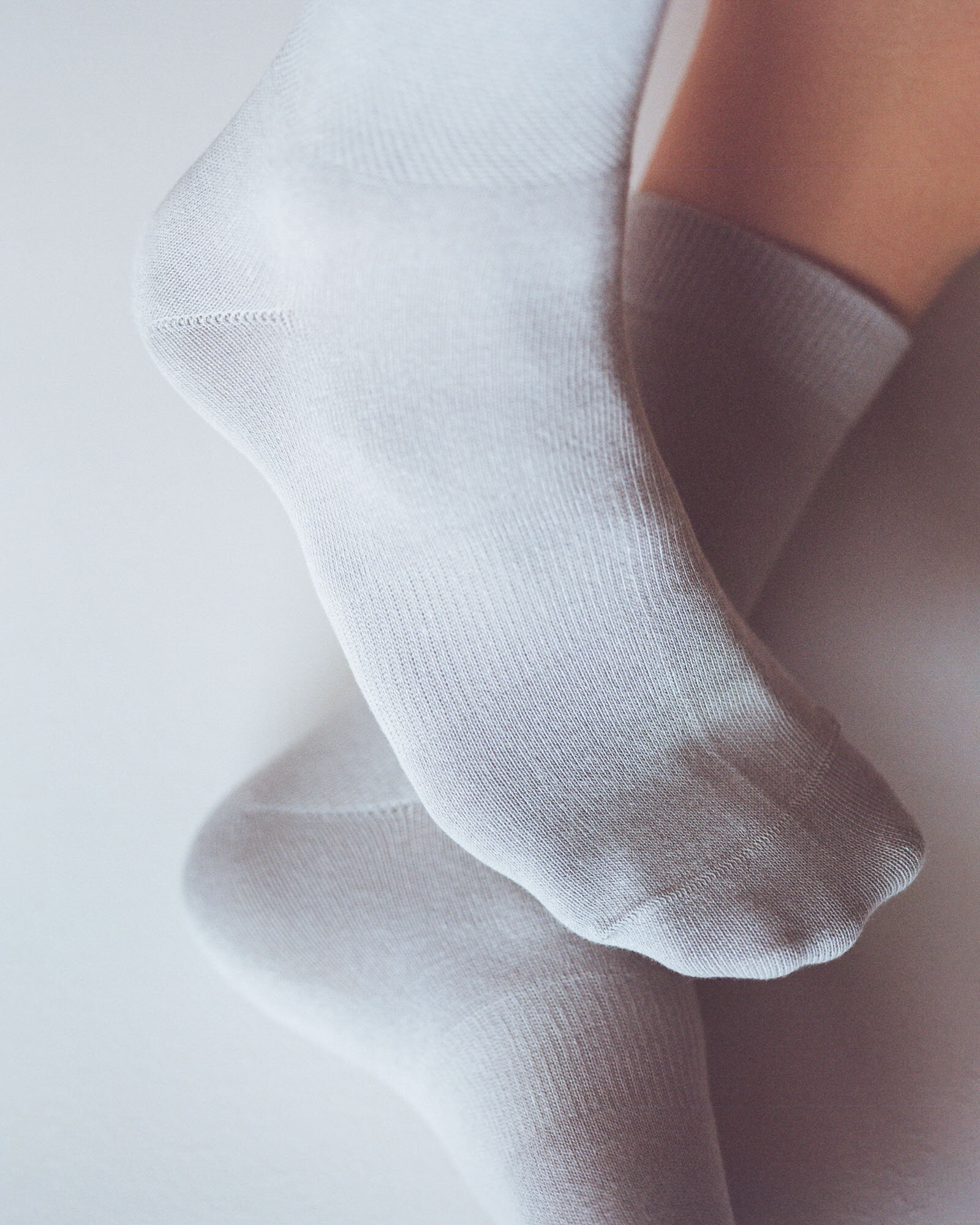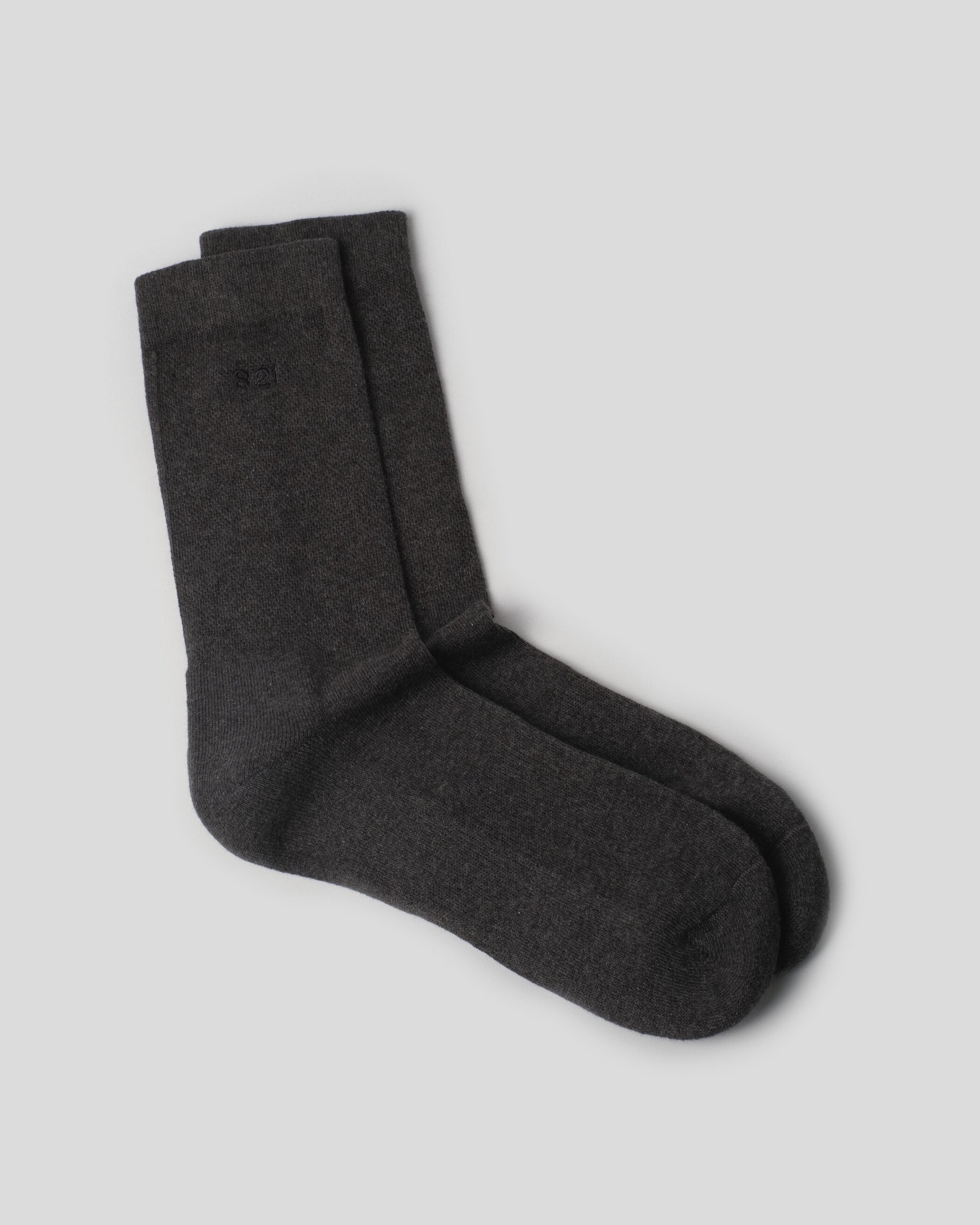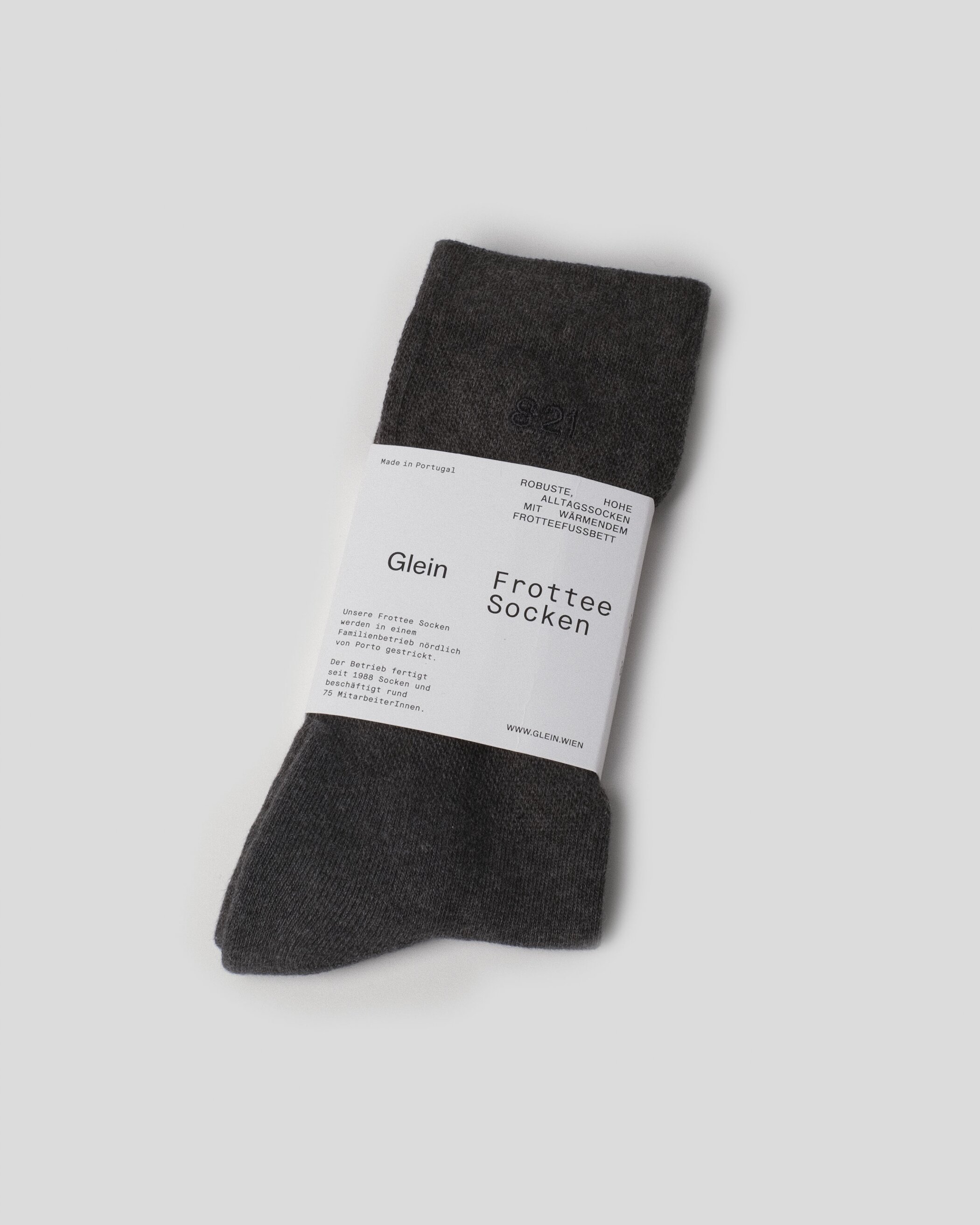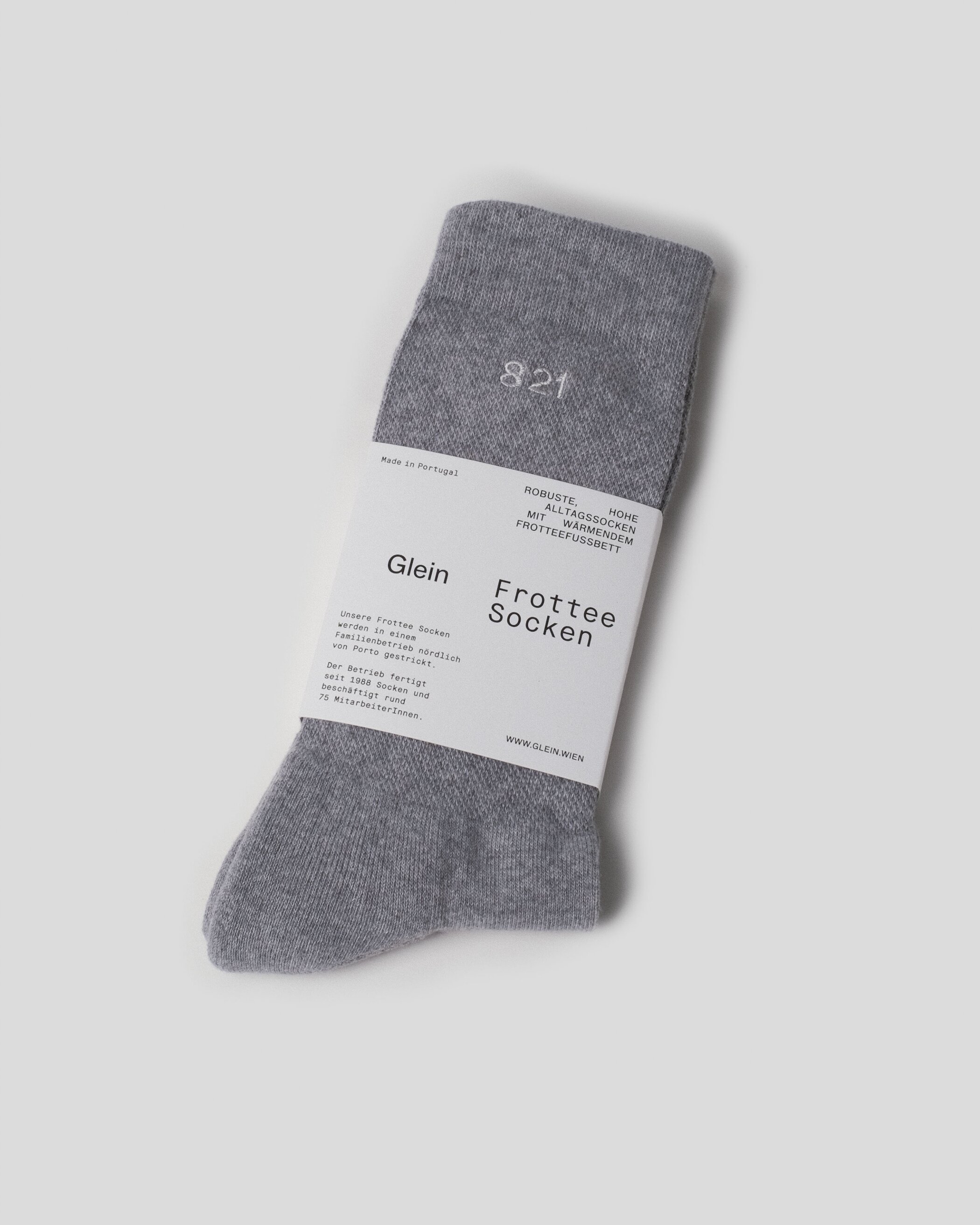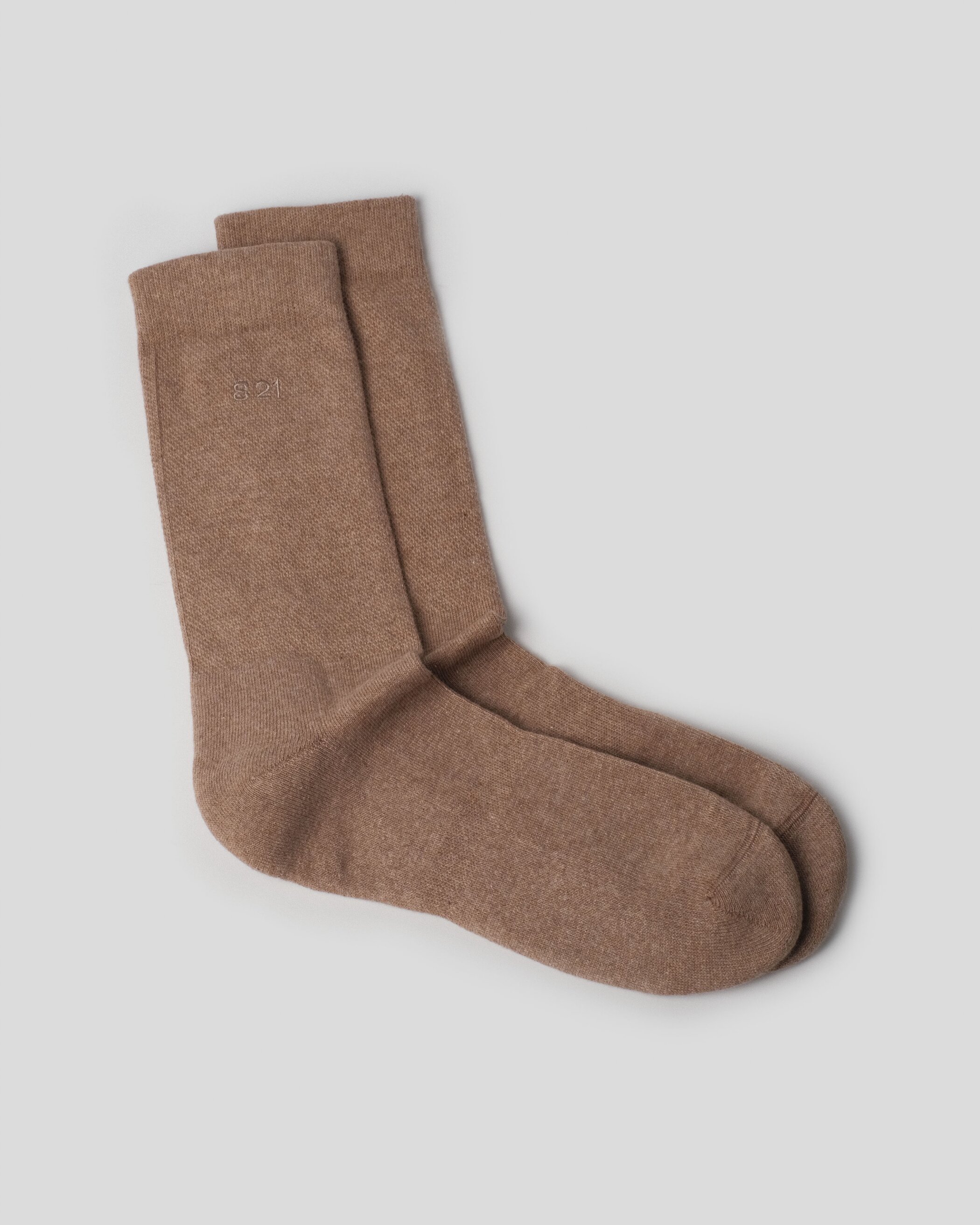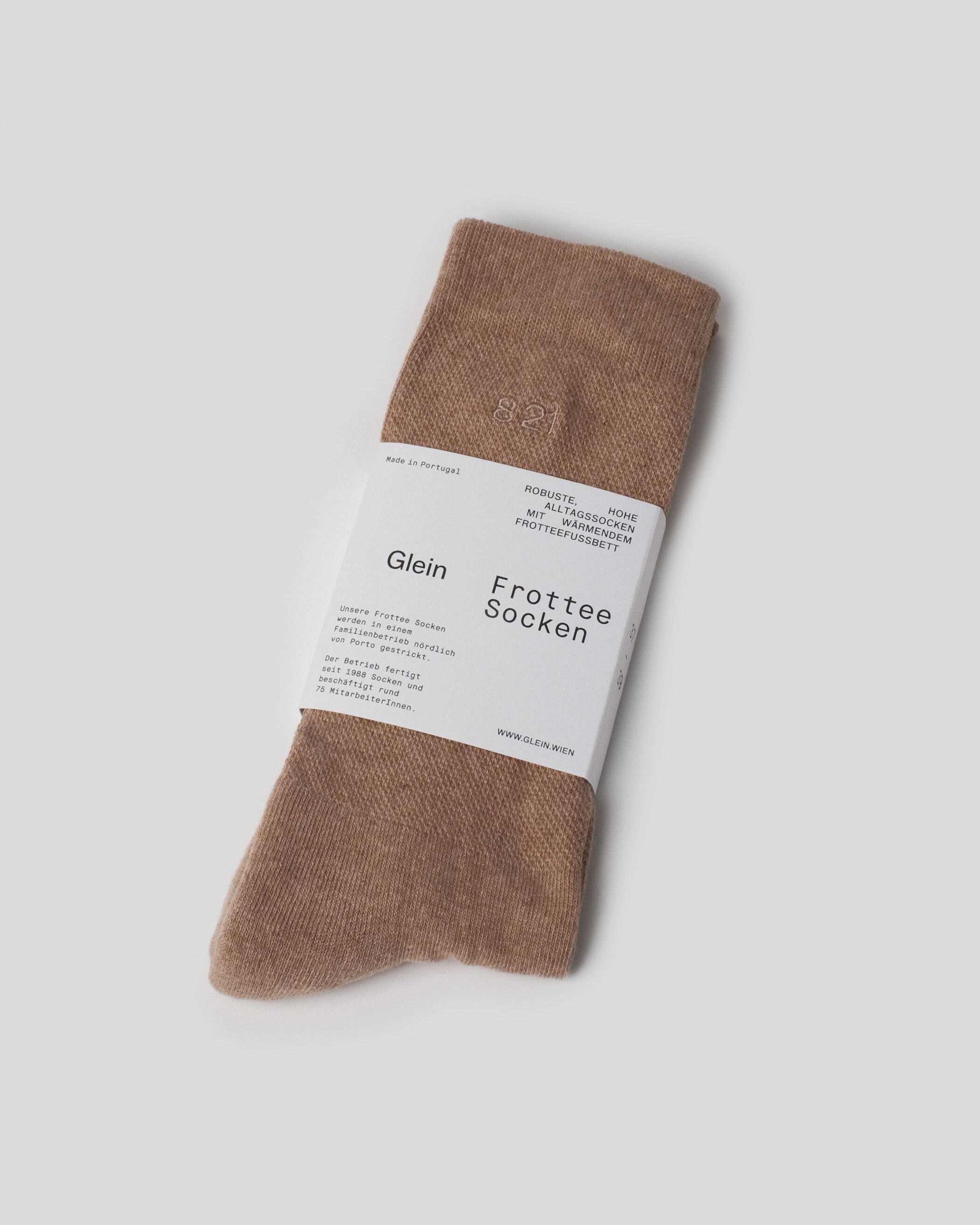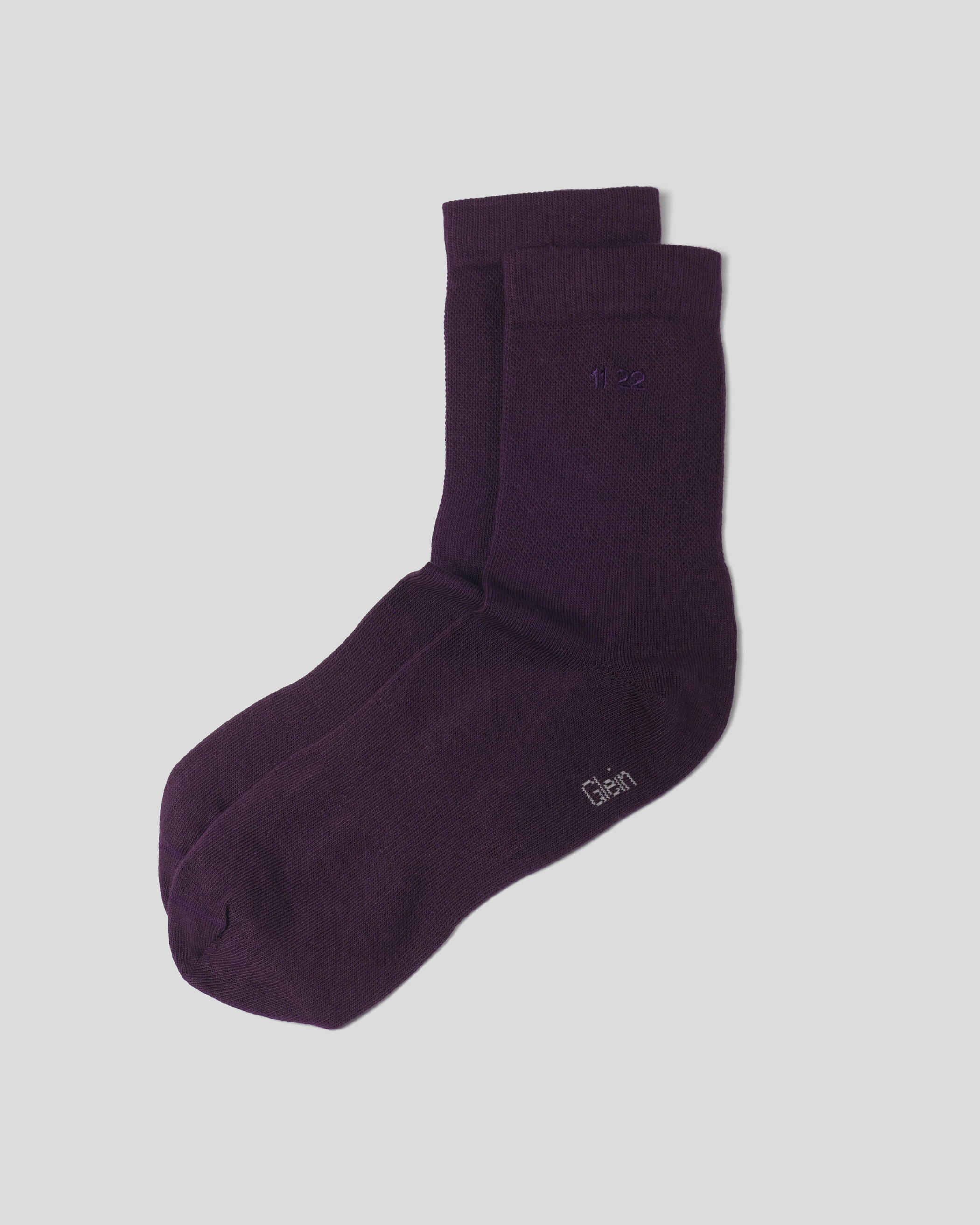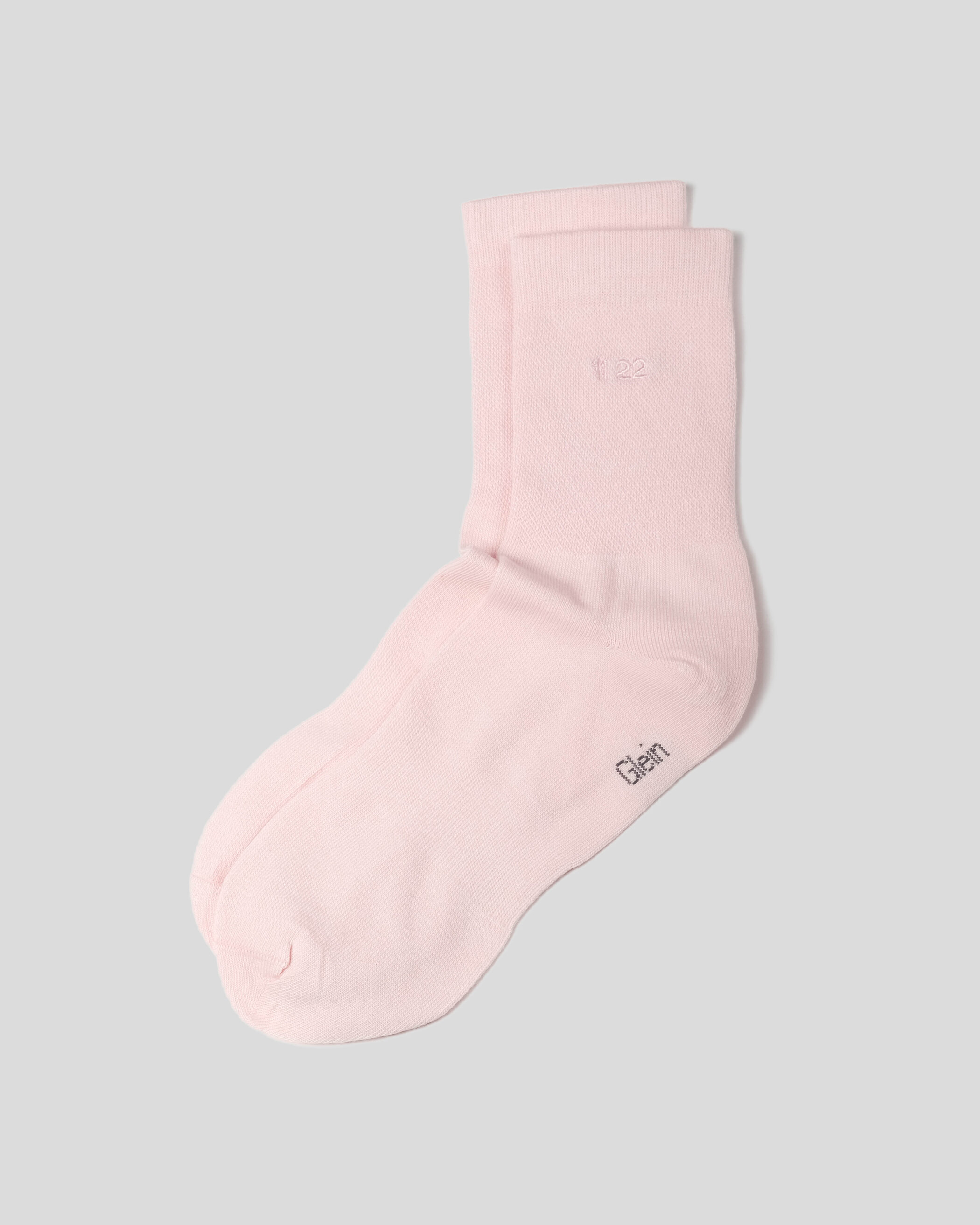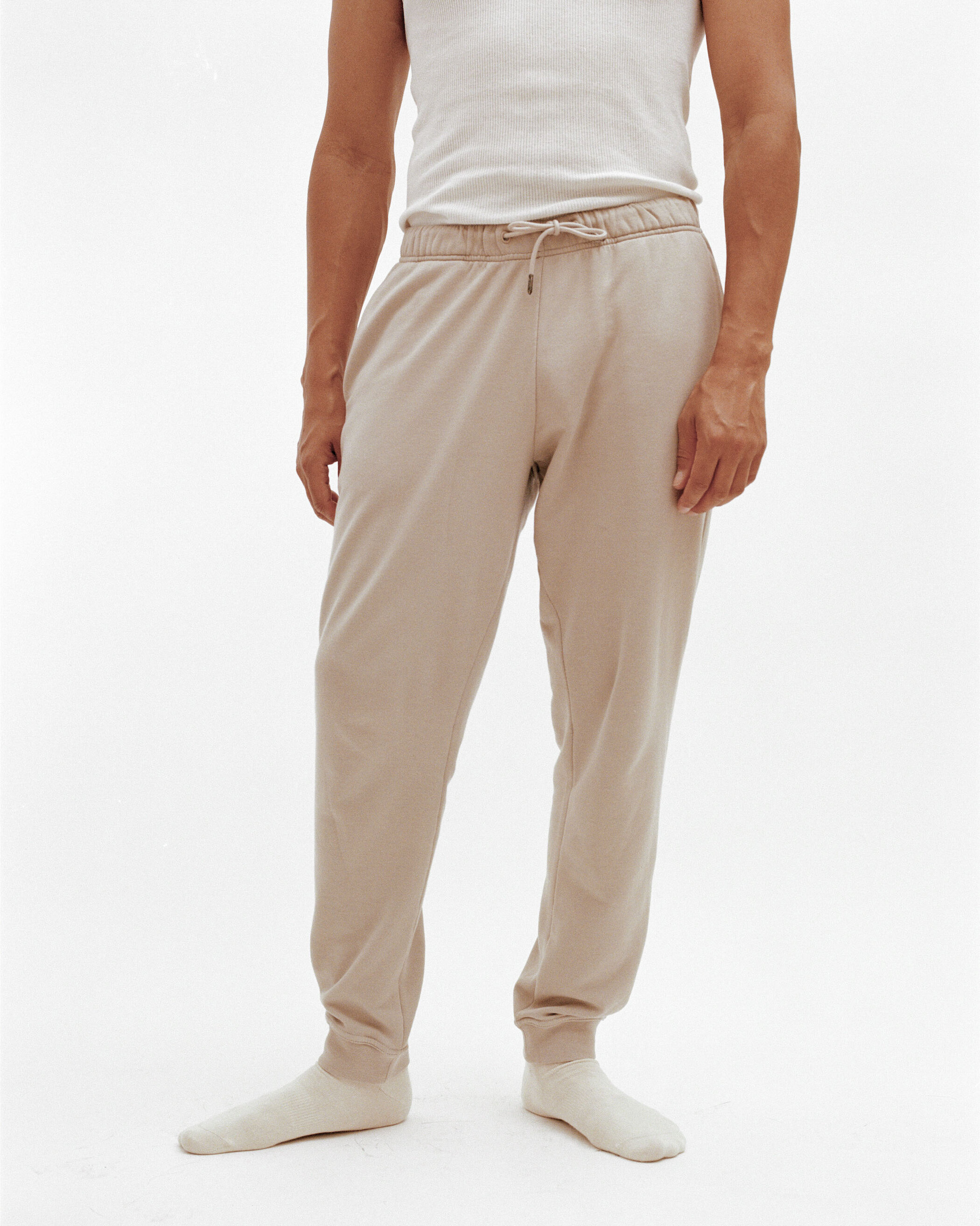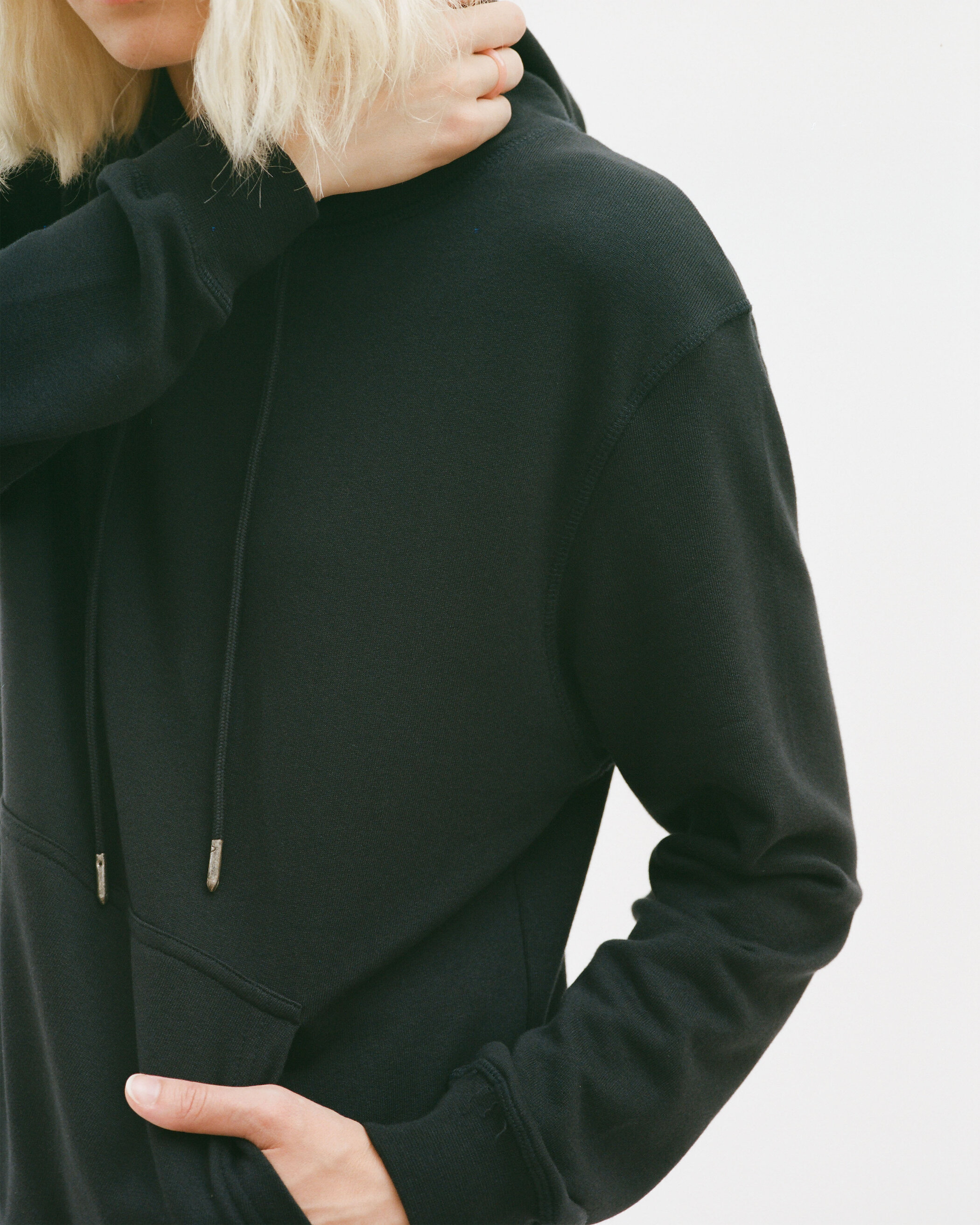Terry Socks
12 €
Info
Robust, comfortable everyday socks
Warming terry cloth footbed
Sustainable materials
Gentle dying process
Height about 28 cm
Handmade in Portugal
GOOD FIT
Our socks are knitted in shape to ensure the best possible fit. A medium height below the calf also ensures that the socks don't slip when worn.
HEALTHY FOOT CLIMATE
Our socks were developed to combine the highest possible proportion of organic cotton with a lasting good fit and durability. The organic cotton absorbs moisture and keeps the foot dry all day.
WARMING TERRY FOOTBED
The terrycloth footbed insulates from below without taking up too much space inside (your) shoes and keeps your feet pleasantly warm.
Images
Materials& Production
Material
Our socks are made from 85% certified organic cotton. In order to ensure the longest possible durability with a lasting good fit, the knit is reinforced with synthetic fibers.
The yarn is spun in Portugal, dyed without harmful substances and is (Eco)//Oeko-Tex Standard 100 certified.
88% organic cotton
06% polyester
04% polyamide
02% elastane
Handmade in Portugal
We manufacture our socks in collaboration with a family business that has been making socks in northern Portugal since 1988.

Cleaning& Care
Waschen bei 30°
Bügeln bei geringer Hitze
Trocknen bei geringer Hitze
Nicht bleichen
NACHHALTIG WASCHEN
Eine Waschtemperatur von 30°C reicht meistens aus, schont die Fasern und spart Energie. Beispielsweise verbraucht ein Waschgang bei 30°C nur etwa 2/3 der Energie eines Waschganges bei 40°C. Kälter Waschen schont also nicht nur die Umwelt, sondern ist auch günstiger.
Das Waschmittel sollte biologisch abbaubar sein, in Österreich ist das z.B. durch das Umweltzeichen gekennzeichnet. Die Dosierung laut Verpackung sollte eingehalten werden, wobei weiches Wasser (wie etwa in Wien) weniger Waschmittel braucht als hartes.
Auf die Verwendung von Weichspüler sollte generell verzichtet werden. Anstelle aggressiver Bleichmittel kann auch etwas Natron verwendet werden und gegen unangenehme Gerüche hilft ein wenig Essig.
Ein großer Teil an Energie kann auch durch das Lufttrocknen der Wäsche und den Verzicht auf maschinelle Trocknung gespart werden.
